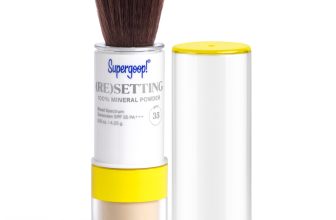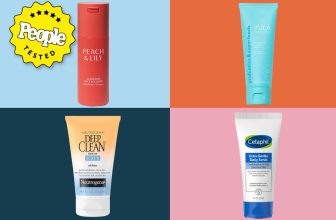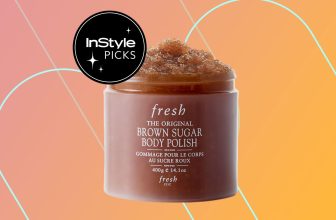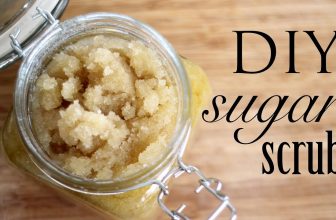Sunscreen Safety Pregnancy
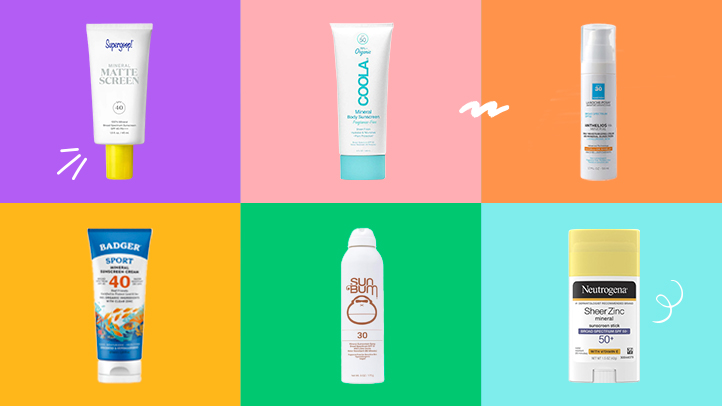
When pregnant, choose sunscreens labeled safe for pregnancy to protect your skin from harmful UV rays. Ensure the sunscreen is free of oxybenzone, avobenzone, and octinoxate.
Sunscreen safety during pregnancy is a crucial consideration for expectant mothers. As the skin becomes more sensitive due to hormonal changes, protecting it from the sun’s harmful rays is essential. Opting for pregnancy-safe sunscreens is vital to shield the skin without exposing the baby to potentially harmful chemicals.
By understanding the ingredients to avoid and selecting suitable products, pregnant women can enjoy the outdoors while safeguarding their skin health. Let’s delve deeper into the importance of sunscreen safety during pregnancy and how to make informed choices for optimal skin protection.

Introduction To Sunscreen Use During Pregnancy
Protecting your skin from the sun is important during pregnancy. Using sunscreen can help prevent skin damage and pigmentation changes caused by sun exposure. Look for pregnancy-safe sunscreens with broad-spectrum protection and SPF 30 or higher to shield your skin from harmful UV rays.
Why Is Sun Protection Crucial For Expectant Mothers?
Protecting your skin from the sun during pregnancy is vital due to increased sensitivity.
Harmful UV rays can worsen skin conditions and cause pigmentation issues.
Minimize risks by using sunscreen to prevent sunburn and premature aging.
Common Misconceptions About Sunscreen And Pregnancy
Misconception: Sunscreen chemicals can harm the baby. Reality: Safe sunscreens are available.
Misconception: Sunscreen causes hormonal changes. Reality: Use pregnancy-safe options.
Misconception: Sunscreen is not necessary. Reality: Protecting your skin is crucial.
Choosing The Right Sunscreen
During pregnancy, it is important to take extra care of your skin as it becomes more sensitive and prone to sunburn. Choosing the right sunscreen can protect your skin from harmful UV rays and prevent skin damage. However, with so many options available in the market, it can be challenging to select a safe and effective sunscreen for pregnant women. Here are some factors to consider when choosing the right sunscreen:
Ingredients To Look For In Pregnancy-safe Sunscreens
When choosing a sunscreen, it is essential to check the ingredients to ensure that they are safe for pregnant women. Here are some of the ingredients that you should look for in a pregnancy-safe sunscreen:
| Ingredients to Look for | Why They are Safe |
|---|---|
| Zinc oxide | A mineral that blocks UV rays and safe for pregnant women as it does not penetrate the skin. |
| Titanium dioxide | Another mineral that blocks UV rays and safe for pregnant women as it does not penetrate the skin. |
| Avobenzone | A chemical that absorbs UV rays and considered safe for pregnant women in concentrations of less than 5%. |
Chemical Vs. Mineral Sunscreens: Which Is Safer?
Chemical and mineral sunscreens are the two types of sunscreens available in the market. Chemical sunscreens contain chemicals that absorb UV rays, while mineral sunscreens contain minerals that reflect UV rays. Mineral sunscreens are considered safer for pregnant women as they do not penetrate the skin and are less likely to cause skin irritation or allergic reactions. On the other hand, some chemical sunscreens may contain ingredients that are not safe for pregnant women, such as oxybenzone and octinoxate, which can disrupt hormones and harm the baby. Therefore, it is recommended to opt for mineral sunscreens that contain zinc oxide or titanium dioxide, which are safe and effective for pregnant women.
Risks Of Sun Exposure During Pregnancy
Excessive sun exposure during pregnancy can pose risks due to increased melanin production, leading to skin discoloration and sensitivity. Choosing a pregnancy-safe sunscreen with broad-spectrum protection and SPF 30 or higher can help shield the skin from harmful UV rays.
It’s essential to prioritize sun protection to avoid potential skin damage and pigmentation concerns during pregnancy.
Understanding Melasma And Skin Elasticity
Sun exposure during pregnancy can lead to skin issues such as melasma and reduced skin elasticity.
Uv Radiation And Its Effects On Maternal Health
UV radiation can negatively impact the health of expectant mothers, leading to various complications. During pregnancy, it’s crucial to protect your skin from the sun to avoid potential risks. Melasma, also known as “pregnancy mask,” is a common condition where dark patches develop on the face due to hormonal changes. Excessive UV exposure can worsen this condition and also affect skin elasticity, leading to premature aging and stretch marks.
Understanding Melasma And Skin Elasticity
Sun exposure during pregnancy can lead to skin issues such as melasma and reduced skin elasticity.
Uv Radiation And Its Effects On Maternal Health
UV radiation can negatively impact the health of expectant mothers, leading to various complications.
Proper Application Of Sunscreen
Proper application of sunscreen is crucial, especially during pregnancy. Ensuring the correct application not only protects the skin from harmful UV rays but also reduces the risk of skin damage. Here are some essential guidelines to follow for the proper application of sunscreen during pregnancy.
How Often Should You Reapply?
Reapplying sunscreen is essential to maintain its effectiveness. Ideally, sunscreen should be reapplied every two hours, or more frequently if you are swimming or sweating. Be diligent about reapplying, especially during prolonged sun exposure to ensure continuous protection.
Best Practices For Application On Sensitive Skin
For sensitive skin, it’s important to choose a sunscreen that is labeled as hypoallergenic and fragrance-free. Additionally, consider using a physical sunscreen containing zinc oxide or titanium dioxide, as these are gentle on the skin. Prior to application, perform a patch test to ensure the product does not cause any adverse reactions.
Additional Sun Safety Tips
When it comes to additional sun safety tips during pregnancy, it’s crucial to take extra precautions to protect your skin from harmful UV rays. In addition to using sunscreen, incorporating protective clothing and seeking shade can further minimize sun exposure and reduce the risk of skin damage. Here are some key strategies to enhance your sun safety regimen:
Protective Clothing And Accessories
Wearing protective clothing such as long-sleeved shirts, wide-brimmed hats, and sunglasses with UV protection can shield your skin and eyes from direct sunlight. Consider opting for lightweight, breathable fabrics that offer UPF (Ultraviolet Protection Factor) to ensure optimal comfort and protection.
Seeking Shade And Planning Outdoor Activities
Seeking shade is essential, especially during peak sun hours between 10 a.m. and 4 p.m. When planning outdoor activities, prioritize shaded areas such as parks with tree cover or carry a portable umbrella for added protection. Additionally, scheduling outdoor excursions in the early morning or late afternoon can help minimize sun exposure and reduce the risk of overheating.
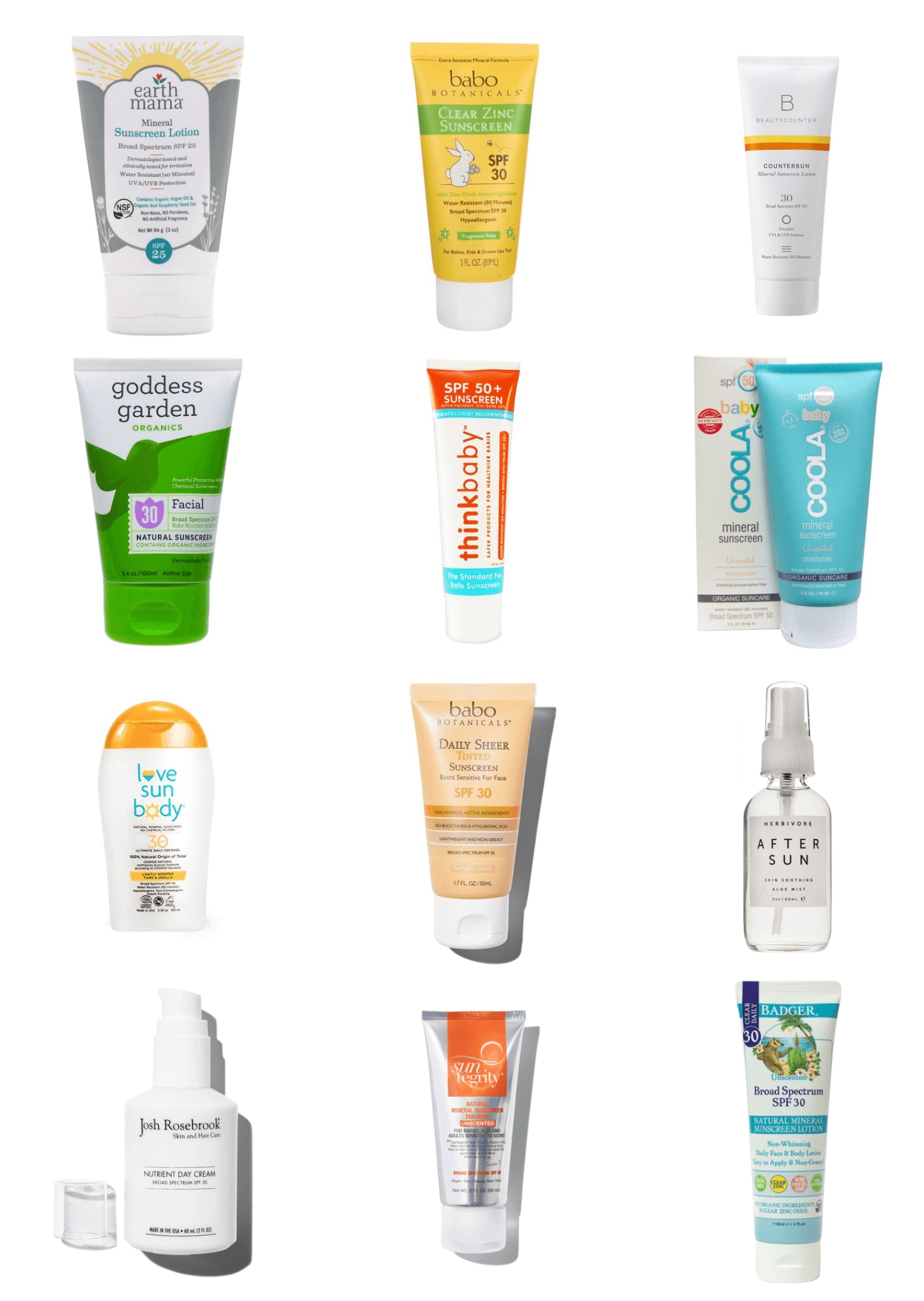
Consulting Healthcare Providers
When To Talk To Your Doctor About Sunscreen Use
Discuss sunscreen safety during your prenatal visits if you have concerns.
Navigating Skin Care During Antenatal Appointments
Seek guidance on safe skincare practices for pregnancy at your antenatal appointments.
Natural Alternatives To Sunscreen
Discover natural alternatives to sunscreen during pregnancy for safe sun protection. Explore options like mineral-based sunscreens, UV-protective clothing, and seeking shade. Prioritize your skin health and baby’s safety with these gentle and effective alternatives.
Natural Alternatives to Sunscreen: Sunscreen is an essential part of our daily skincare routine, but it can be harmful to pregnant women due to the chemicals present in it. Many pregnant women prefer natural alternatives to sunscreen that are safe and effective. In this section, we will discuss herbal remedies and DIY sunscreen recipes that can be a great substitute for commercial sunscreens. Herbal Remedies and Their Efficacy: Herbal remedies have been used for centuries to protect the skin from the harmful effects of the sun. Some of the popular herbal remedies that pregnant women can use as a natural alternative to sunscreen are: – Aloe Vera: Aloe Vera gel is a natural sunscreen that can protect the skin from harmful UV rays. It also has anti-inflammatory properties that can soothe sunburned skin. – Green Tea: Green tea contains antioxidants that can protect the skin from UV damage. Drinking green tea can also help improve skin health. – Coconut Oil: Coconut oil has natural SPF properties that can protect the skin from UV rays. It also has moisturizing properties that can keep the skin hydrated. DIY Sunscreen Recipes and Their Safety: DIY sunscreen recipes are a great way to protect the skin from the sun without any harmful chemicals. However, it is important to ensure that the ingredients used in the recipe are safe for pregnant women. Here are some DIY sunscreen recipes that pregnant women can try: – Zinc Oxide Sunscreen: Zinc oxide is a natural mineral that can protect the skin from UV rays. Mix 1/4 cup of zinc oxide powder with 1 cup of coconut oil and 1/4 cup of beeswax. Heat the mixture until it melts and then pour it into a container. Let it cool down and use it as a sunscreen. – Shea Butter Sunscreen: Shea butter is a great natural sunscreen that can protect the skin from the sun’s harmful rays. Mix 1/4 cup of shea butter with 1/4 cup of coconut oil and 1/4 cup of beeswax. Heat the mixture until it melts and then pour it into a container. Let it cool down and use it as a sunscreen. – Carrot Seed Oil Sunscreen: Carrot seed oil is a natural sunscreen that can protect the skin from UV rays. Mix 1/4 cup of carrot seed oil with 1/4 cup of coconut oil and 1/4 cup of beeswax. Heat the mixture until it melts and then pour it into a container. Let it cool down and use it as a sunscreen. Conclusion: Natural alternatives to sunscreen are a safe and effective way to protect the skin from the sun’s harmful rays. Pregnant women can use herbal remedies and DIY sunscreen recipes to keep their skin healthy and safe. It is important to ensure that the ingredients used in the recipe are safe for pregnant women.
Faqs About Sunscreen Use In Pregnancy
Discover essential FAQs about safe sunscreen use during pregnancy to protect your skin effectively. Learn about the best practices for sunscreen safety in pregnancy to keep your skin healthy and shielded from harmful UV rays. Understand the importance of choosing pregnancy-safe sunscreens for optimal protection.
Can Sunscreen Affect My Unborn Baby?
Sunscreen is safe to use during pregnancy and does not harm your unborn baby.
Choose a sunscreen with broad-spectrum protection and an SPF of 30 or higher.
Addressing Common Concerns And Myths
Myth: Sunscreen chemicals can be absorbed into the bloodstream and harm the baby.
Fact: The amount absorbed is minimal and does not pose a risk to the baby.
Myth: Sunscreen use can lead to vitamin D deficiency in pregnant women.
Fact: Sunscreen does not completely block vitamin D absorption; brief sun exposure is sufficient.
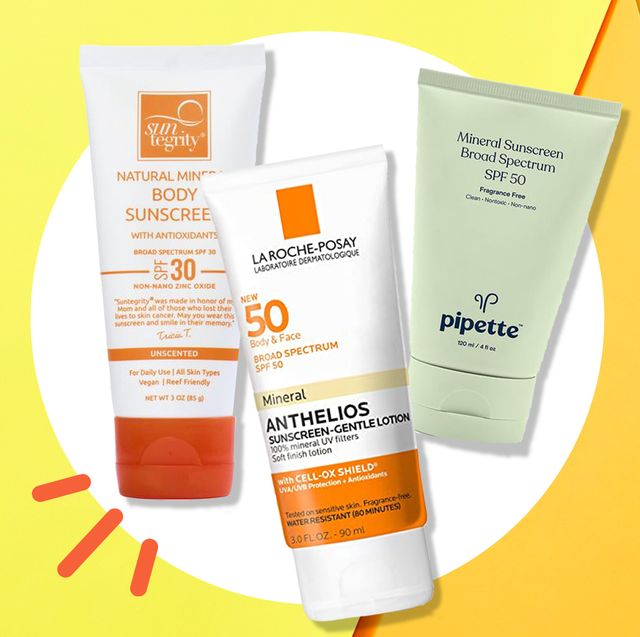
Frequently Asked Questions
Is Any Sunscreen Safe For Pregnancy?
Yes, sunscreen is safe for pregnancy. Look for mineral-based sunscreens with zinc oxide or titanium dioxide. Avoid chemical UV filters like oxybenzone and avobenzone. Always consult with your healthcare provider for specific recommendations.
Can I Use Coppertone Sunscreen While Pregnant?
Yes, you can use Coppertone sunscreen while pregnant. It’s safe and effective for sun protection.
Can You Use Supergoop While Pregnant?
Yes, Supergoop products are safe to use during pregnancy, as they are formulated without harmful ingredients.
Can We Use Moisturizer And Sunscreen During Pregnancy?
Yes, it is generally safe to use moisturizer and sunscreen during pregnancy. However, it is important to choose products that are free from harmful chemicals like retinoids and oxybenzone. Consult with your healthcare provider or a dermatologist to ensure the safety of any skincare product during pregnancy.
Conclusion
Choosing the right sunscreen during pregnancy is crucial for both the mother’s and the baby’s health. By prioritizing sun safety and opting for mineral-based, pregnancy-safe sunscreens, expecting mothers can enjoy outdoor activities without worry. It’s important to consult with a healthcare professional for personalized recommendations.
Protecting the skin from harmful UV rays is a top priority for a healthy pregnancy.



